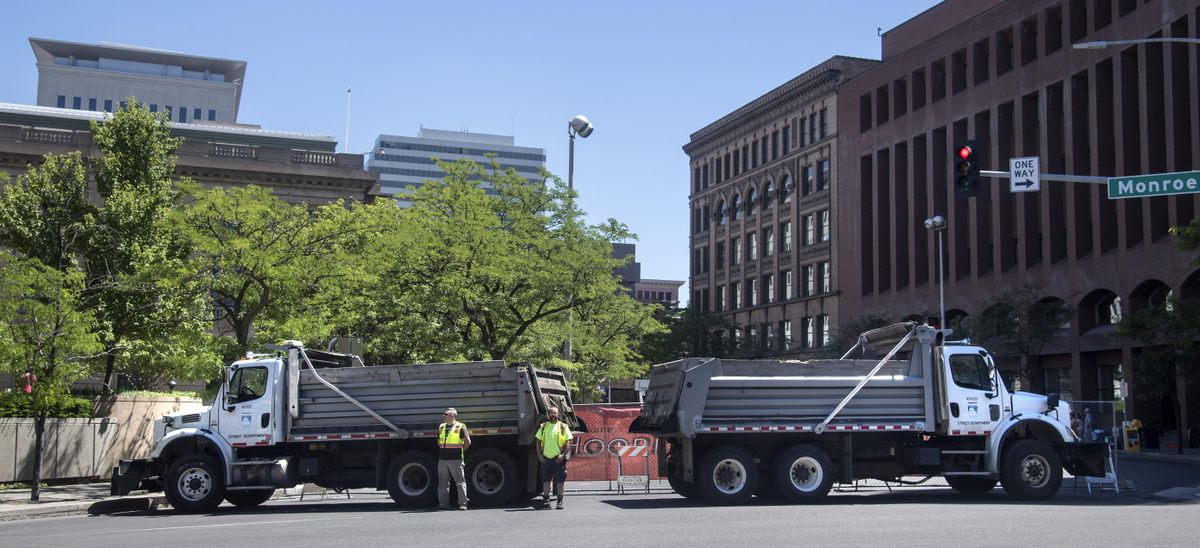City places heavy trucks outside Hoopfest in new security move

City of Spokane trucks loaded with ground-up asphalt have been posted around Hoopfest this year as a new security measure amid an atmosphere of heightened fears of vehicular terror attacks.
Located at the corner of Monroe Street and Riverside Avenue, as well various other points surrounding the festival, the trucks – and their drivers – are being leased by Hoopfest as another layer of protection, said Jim Dibble, Hoopfest’s head of security.
“Obviously, following attacks in London and other places, we were concerned about security,” Dibble said. “Having so many players and spectators concentrated in one place, playing on the roads themselves, it was something we had to look at.”
While planning for the event this year, Dibble said Hoopfest took a look at the main thoroughfares to see where security could be vulnerable. If someone tried to drive into the festival, even by accident, the small wire gates wouldn’t offer much protection, he said.
Brian Coddington, spokesman for the city, said the truck blockades are a new tool the city is offering for security purposes. Easier to clean up than a bunch of barrels and fencing, and far more effective as a barrier, the trucks were previously used this year for security at Bloomsday, he said.
Though leasing the trucks isn’t cheap, it’s a price worth paying to keep people safe and for the festival to do its due diligence, Dibble said.
Officer Kelly Burkhart, who works security for the Centennial Real Estate Investments building and was keeping a watch by the trucks on Monroe, said he thinks having the trucks is a good decision. Centennial Real Estate Investments is a subsidiary of the Cowles Company, which owns The Spokesman-Review.
“Especially in light of the heightened terror threat and all the things that have been happening,” he said, referring to recent vehicular attacks in London; Nice, France; Germany; and the drug-fueled accident in Times Square in May.
Burkhart, who said he has studied national security and has received FEMA training, thought it looked effective. He said he didn’t believe anyone could drive through – intentionally or not.